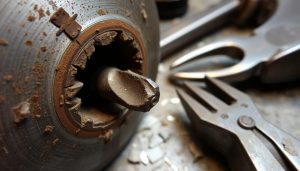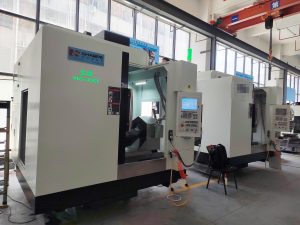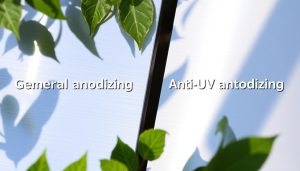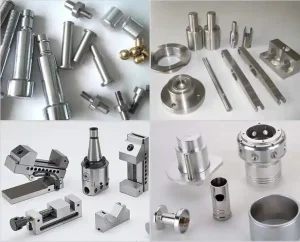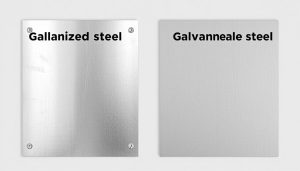Anodized aluminum is a remarkable material that has captured the attention of industries across the globe. This specialized form of treated aluminum undergoes an intricate electrochemical process, transforming the metal into a durable, corrosion-resistant, and visually appealing material. The anodizing process enhances aluminum’s natural properties, making it a versatile choice for a wide range of applications, from automotive and aerospace to consumer electronics and household products.
Understanding Anodized Aluminum
Anodized aluminum is a unique and innovative material that has transformed the way we use and interact with aluminum. The process of anodizing involves submerging aluminum in an electrolyte bath and passing an electric current through it. This controlled oxidation process creates a thick, protective aluminum oxide layer on the surface of the metal, significantly enhancing its durability, corrosion resistance, and aesthetic appeal.
What is the Anodizing Process?
The anodizing process is an electrochemical treatment that transforms the surface of aluminum. During this process, the aluminum is immersed in an electrolyte solution and an electric current is applied. This current triggers a controlled oxidation reaction, causing the aluminum to form a durable aluminum oxide layer on its surface. The thickness and properties of this oxide layer can be precisely controlled, making anodized aluminum a versatile and highly customizable material.
How Does Anodizing Improve Aluminum?
Anodizing enhances the natural properties of aluminum, making it more durable, corrosion-resistant, and wear-resistant. The aluminum oxide layer created during the anodizing process is much harder and more scratch-resistant than the original aluminum surface. This increased durability and protection makes anodized aluminum an ideal choice for a wide range of applications, from automotive and aerospace industries to consumer electronics and household products.
Types of Aluminum That Can Be Anodized
- 1000 series aluminum alloys
- 2000 series aluminum alloys
- 3000 series aluminum alloys
- 5000 series aluminum alloys
- 6000 series aluminum alloys
- 7000 series aluminum alloys
These various aluminum alloys can all undergo the anodizing process, allowing manufacturers and designers to choose the most suitable material for their specific needs and applications.
“Anodizing is a versatile and transformative process that elevates the natural properties of aluminum, making it a highly desirable material for a wide range of industries and applications.”
Benefits of Anodized Aluminum
Anodized aluminum is a remarkable material that offers numerous advantages over its non-anodized counterpart. From exceptional corrosion resistance to a wide array of color options and unparalleled sustainability, this versatile metal is a game-changer in a variety of industries.
Durability and Corrosion Resistance
One of the primary benefits of anodized aluminum is its exceptional durability and resistance to corrosion. The anodizing process creates a durable, protective oxide layer on the surface of the aluminum, shielding it from the elements and harsh environmental conditions. This makes anodized aluminum an ideal choice for applications in industries such as automotive, aerospace, and marine, where the material is exposed to extreme wear and tear.
Aesthetic Appeal and Color Options
Anodized aluminum also boasts a diverse range of color options, allowing for a high degree of customization and design flexibility. The anodizing process enables the aluminum to be dyed in a wide spectrum of colors, from vibrant hues to subtle earth tones, making it a popular choice for consumer electronics, architectural elements, and various other applications where aesthetics play a crucial role.
Environmental Impact and Sustainability
Anodized aluminum is also an environmentally friendly and sustainable material. It is 100% recyclable, and the anodizing process itself produces minimal waste, making it a responsible choice for eco-conscious consumers and businesses. Additionally, anodized aluminum’s enhanced durability and corrosion resistance contribute to its longevity, reducing the need for frequent replacements and further minimizing its environmental impact.
| Benefit | Description |
|---|---|
| Corrosion Resistance | Anodized aluminum is highly resistant to corrosion, making it ideal for harsh environments. |
| Color Options | The anodizing process allows for a wide range of color customization, enhancing the material’s aesthetic appeal. |
| Sustainability | Anodized aluminum is 100% recyclable and the anodizing process produces minimal waste, making it an environmentally friendly choice. |
“Anodized aluminum is a game-changer in the world of materials, offering unparalleled durability, design flexibility, and environmental responsibility.”
Applications of Anodized Aluminum
Anodized aluminum has found extensive applications across various industries, showcasing its remarkable versatility and practical benefits. From the automotive and aerospace sectors to consumer electronics and architectural design, this versatile material continues to impress with its unique properties.
Automotive and Aerospace Industries
In the automotive and aerospace industries, anodized aluminum is highly sought after for its exceptional strength-to-weight ratio and superior corrosion resistance. Lightweight yet durable, anodized aluminum components are widely used in the production of vehicles, aircraft, and aerospace equipment, enhancing performance and fuel efficiency. The automotive industry, in particular, relies on anodized aluminum for a range of applications, including body panels, engine parts, and suspension systems.
Consumer Electronics and Household Products
The sleek appearance and scratch-resistant properties of anodized aluminum make it an ideal choice for consumer electronics and household products. Electronics manufacturers, from smartphones to laptops and tablets, often incorporate anodized aluminum in their designs, providing a premium look and feel while also protecting sensitive components. Similarly, household items such as appliances, kitchen utensils, and furniture often feature anodized aluminum for its durability and aesthetic appeal.
Sports Equipment and Architecture
The strength-to-weight ratio and corrosion resistance of anodized aluminum also make it a popular material in the sports equipment industry. Manufacturers of bicycles, sporting goods, and outdoor gear frequently utilize anodized aluminum to create lightweight, high-performance products. In the architectural realm, anodized aluminum is a versatile choice for both interior and exterior applications, offering design flexibility, weather resistance, and long-lasting performance.
| Industry | Automotive and Aerospace | Consumer Electronics | Sports Equipment | Architecture |
|---|---|---|---|---|
| Key Applications |
|
|
|
|
| Key Benefits |
|
|
|
|
The diverse applications of anodized aluminum showcase its ability to meet the unique demands of various industries, from the automotive and aerospace sectors to consumer electronics and architectural design. With its exceptional properties and versatility, anodized aluminum continues to be a material of choice for innovative and durable products.

Common Questions About Anodized Aluminum
Anodized aluminum is a popular material known for its durability, corrosion resistance, and aesthetic appeal. However, many people have questions about its lifespan, repairability, and safety. Let’s explore some of the most common inquiries about this versatile metal.
How Long Does Anodized Aluminum Last?
One of the key benefits of anodized aluminum is its exceptional longevity. With proper care and maintenance, anodized aluminum can last for decades. The lifespan of anodized aluminum can vary depending on factors such as the environment, frequency of use, and the thickness of the anodized layer. In general, high-quality anodized aluminum can maintain its appearance and performance for 20 to 30 years or more.
Can Anodized Aluminum Be Repaired?
While anodized aluminum is remarkably durable, the anodized surface can sustain damage over time. Minor scratches or scuffs are often able to blend in and become less noticeable. However, more significant damage to the anodized surface can be challenging to repair. In some cases, the affected area may need to be re-anodized, which requires specialized expertise and equipment. For optimal results, it’s best to consult with a professional when considering repairing anodized aluminum surfaces.
Is Anodized Aluminum Safe for Food and Medical Use?
Anodized aluminum is widely considered a safe and food-safe material, making it a popular choice in the food industry and medical equipment manufacturing. The anodizing process creates a non-reactive, inert surface that does not react with food or corrode. This ensures that anodized aluminum is suitable for direct contact with food and other sensitive applications, such as medical devices and surgical instruments.
Overall, anodized aluminum is a versatile and long-lasting material that offers a range of benefits. By understanding its lifespan, repairability, and safety, you can make informed decisions when selecting anodized aluminum for your projects or everyday use.

Why Choose Shixinproto for Your Anodized Aluminum Needs
When it comes to high-quality anodized aluminum products and custom anodizing services, Shixinproto stands out as a trusted industry leader. With state-of-the-art facilities and a team of experienced technicians, Shixinproto ensures precise color matching, consistent quality, and timely delivery for all your anodized aluminum needs.
As an anodized aluminum supplier, Shixinproto’s commitment to quality assurance is unparalleled. Their comprehensive quality control processes guarantee that each and every product meets the strictest standards, ensuring customer satisfaction across various industries, from automotive and aerospace to consumer electronics and sports equipment.
When you choose Shixinproto for your custom anodizing services, you can rest assured that your project is in capable hands. Their team of experts works closely with you to understand your specific requirements and deliver solutions that exceed your expectations. With a focus on innovation and attention to detail, Shixinproto is the reliable partner you can count on for all your anodized aluminum needs.
